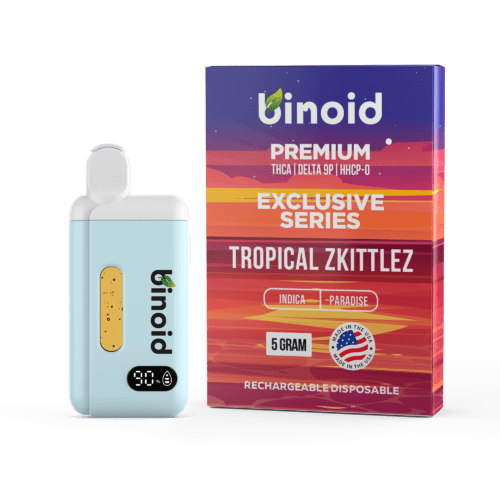THCM is coming to Binoid soon, but what actually is it, and how does it stand out from the other hemp derivatives that have taken the market by storm? What’s unique about 11-Nor-Delta-9-Tetrahydrocannabinol-9-Carboxylic Acid {Carboxy-THC} is that it’s never been isolated in cannabis – only found in cannabis smoke.
We don’t know anything about its potential benefits, or even if it can get you high. So naturally, there are some people wondering whether or not this mysterious hemp derivative can cause a failed drug test. Let’s find out.
To Buy THCM Products Click Here
Recommended products
What Is THCM?
11-Nor-Delta-9-Tetrahydrocannabinol-9-Carboxylic Acid {Carboxy-THC} isn’t a new discovery, which makes it distinct from many of the cannabinoids that exist on the market right now, like tetrahydrocannabinol (THC-P), tetrahydrocannabihexol (THC-H), and delta-10 tetrahydrocannabinol (delta 10 THC). THCM is a compound that was discovered in 1997, and isn’t even referred to in clinical contexts as a cannabinoid, but rather a cannabis byproduct that is present in cannabis smoke.
THCM is, in fact, a biomarker that is used to determine potential in-utero exposure to cannabis smoke for up to 5 months before birth. In other words, the reason why we even know that it exists is because it was discovered as a means to determine whether or not fetuses were exposed to cannabis while in the womb.
THCM hasn’t ever even been isolated in cannabis. While it can be detected for its one current clinical use, no researcher has ever actually isolated the compound in the plant. What this means is that for all intents and purposes, we don’t have proof that it exists in raw cannabis, because we only know, for now, that it is found in the smoke of the plant.
Is THCM Going to Show Up on a Drug Test?
First off, we want to mention that drug tests aren’t looking for traces of individual cannabinoids, or for actual cannabis, at all. What they’re looking for is an enzyme in the body called, “THC-COOH”. This is what THC cannabinoids convert into as they make their way through the body’s metabolic process.
11-Nor-Delta-9-Tetrahydrocannabinol-9-Carboxylic Acid {Carboxy-THC} has never been isolated in the cannabis plant. What this means is that we don’t know what its chemical structure looks like, and because of that, we don’t know how it metabolizes. So, we can’t tell you with certainty whether or not THCM converts into THC-COOH, in the way that, say, delta 8, or delta 9 do.
However, because THCM is a THC cannabinoid, it’s very, very likely that it does metabolize through the same channel as delta 9, and all of the THC cannabinoids we’ve studied so far. And, that would mean that THCM does show up on a drug test.
Another thing worth mentioning is that THCM likely acts as a potentiator, meaning that taking it with another cannabinoid enhances that other cannabinoid’s potency. And, that’s why all of the THCM products on the market right now combine THCM with another cannabinoid, which does cause a failed drug test result. For instance, taking THCM with THC-P would mean a stronger THC-P high. While we don’t know for certain, that could influence the likelihood of failing a drug test.
Recommended products
Different Drug Tests That May Pick Up THCM
There are a number of types of drug tests out there, with urine tests being the most common by far. Let’s take a look at each type of drug test, and also see what it could mean for those taking THCM.
- Urine Tests: Urine tests make up 90% of the drug tests administered in the country, and are very reliable, inexpensive, and promise a fast turnaround time.
- Blood Tests: Blood tests are usually administered in hospitals, to determine if a person is currently high. This means that they pick up on THC before it metabolizes, while it’s still in the bloodstream, so there’s no THC-COOH being detected. Whether or not these drugs can pick up THCM isn’t known.
- Saliva Tests: Saliva tests determine whether or not you’ve consumed THC in the last 10 hours. There’s a chance that you may pass if you’ve taken THCM.
- Hair Tests: Hair tests check a person’s hair for drug use within the last 90 days. They may or may not show THCM usage. But, they’re not commonly used because they have a long turnaround time, are expensive, and can be unreliable.
- Sweat Tests: Sweat tests aren’t typically used to show drug use. They are more for doing clinical studies. They consist of a patch that’s stuck to a person’s skin for 2 weeks, where it collects traces of compounds found in a person’s sweat.
What Factors Influence A THCM Drug Test?
Let’s say that THCM does, in fact, cause a failed drug test result, and that you’ve taken it recently, by itself or with another cannabinoid. So, how likely are you to fail? Let’s find out.
#1: The Amount Of THCM You’ve Taken
Of course, the more THCM products you’ve actually taken, the longer it will take to fully clear from your body. If you’ve taken a tiny dose, it can disappear in as little as 48 hours. It’s all about the amount of THC-COOH that’s in your system at the time of your test, because if you’ve taken a lot of it, you’re going to have an accumulation of THC-COOH slowly leaving the body.
#2: When You Last Took THCM
Urine tests can determine if you’ve taken THCM at some time in the last 2-60 days. If it’s been a number of weeks since the last time you had THCM, you’re far less likely to test positive. If it’s been only a couple of days since you last took THCM, you’re more likely to fail. For reasons we’ll get into in the next section, if you’ve only taken THCM, say, one or two times, you could very well pass after about 2 weeks or so.
#3: How Often You’re Taking THCM
Overall, you’re more likely to pass a test if you’ve only taken THCM product one or two times. THC-COOH always leaves the body at the same rate, so if you were taking it multiple times a day, there may be a “traffic jam” effect in which THC-COOH remains in the body for a long time, even after you’ve stopped taking it, as it can only leave the body so fast. In this case, you may test positive for up to 60 days, as your body is still trying to metabolize all of the cannabinoid that has built up in your body.
#4: How You Metabolize THCM
Some people just metabolize cannabinoids faster than others. A person’s overall health can have a lot to do with how long it takes your body to rid itself of cannabinoid metabolites, and factors like age, weight, immune health, and hormonal health all play a role. And, if you’ve been sick, it can take longer for you to metabolize THCM completely, as our metabolism slows down when we’re ill.
#5: Other Cannabinoids in Your System
Like we said, THCM is usually sold in combination with other, psychoactive cannabinoids, which do cause a failed drug test result. Cannabinoids that also convert into THC-COOH, like delta 8, THC-O, HHC, and so on, will mean that there’s THC-COOH in your system. Basically, taking THCM with any THC or HHC cannabinoid means you’re probably going to fail a test.
#6: Any Medications You’re On
It needs to be pointed out that certain very common medications can decrease the speed at which you metabolize cannabinoids. It seems that all cannabinoids bind up CYP3A4, an enzyme that breaks down both cannabinoids and many popular medications, including steroid medications, opioids, antidepressants, and blood pressure medications. Basically, if you’re on one of these medications, there’s a good chance that you’ll metabolize cannabinoids like THCM compound more slowly, meaning a longer window during which you may test positive.
Recommended products
Where To Buy THCM Vapes & Carts
Currently, you can buy THCM products from trusted online brands such as Binoid CBD and Delta-8. They have brand new THCM vapes that come in many amazing strains and you can get right on their website for an amazing price.
In fact, Binoid is one of the first brands to carry THCM products and vapes that are extremely potent and enjoyable. On top of their amazing product, they have amazing customer service, THCM vape prices are the lowest we have seen, and just overall one of the best places to buy THCM online.
Can Anything Help Me Clear THC-COOH More Quickly?
We’re often asked if there’s something that can help THC-COOH leave the body more quickly. You’ve probably come across a number of “tips”, like drinking extra water, taking detox products, taking zinc, and drinking cranberry juice. But, none of these methods have been proven to be effective. That’s why we can’t recommend relying on these methods if you have a test coming up.
How Drug-Testing For THCM Works
When a person takes a standard urine test for an employer or other type of organization, the test is not actually seeking to identify levels of THC in the body. Instead, it’s searching for THC-COOH – a type of metabolite that’s released into the body when a person consumes THC, in order to break it down. THC-COOH is fat-soluble, which means that it remains in the body for quite a while. This is why a person can test positive for several days up to weeks following THC usage.
Because standard drug tests are testing for a metabolite rather than a specific compound, this raises the question about how tests will respond to other cannabinoids. In other words, are there other compounds in hemp that cause the body to produce THC-COOH?
Recommended products
What To Know About THCM Before Testing
If you want to take your chances and use THCM products despite knowing that you may be drug-tested in the relatively near future, there are some things to keep in mind first. One is that in the event that THCM does, in fact, trigger a positive result, your usage can make a difference.
Comparing it to THC, we see that those who only use marijuana once in a while can require 5 or so days before they test “clean”, while heavy users may need somewhere around a month of abstinence before THC-COOH is no longer detectable in their urine.
In other words, if you are worried that using THCM can cause a positive result, you might want to apply this information to your THCM usage. In other words, consider when it’s time to take a break from using THCM so that the potential levels of THC-COOH would no longer be traceable by the date of your test.
Also, there are cannabinoids that do likely trigger THC-COOH, and those are delta 8 THC, delta 10 THC, THC-O, and THC-P. Some hemp companies make products that combine THCM with at least one of these cannabinoids, so taking them could cause you to fail a drug test, not because of the THCM itself.
THCM May Cause A Failed Drug Test Result
Big takeaway: If you’re using THCM, you may very well fail a drug test result, especially if you’re taking a product that combines THCM with a psychoactive cannabinoid. That being said, if you have a test coming up we urge you to abstain from THCM, along with all psychoactive cannabis derivatives. While we still don’t know the exact relationship between HHC cannabinoids and THC-COOH, it’s always better to be safe than sorry, and assume that 11-Nor-Delta-9-Tetrahydrocannabinol-9-Carboxylic Acid {Carboxy-THC} does, in fact, convert into THC-COOH in the body.









